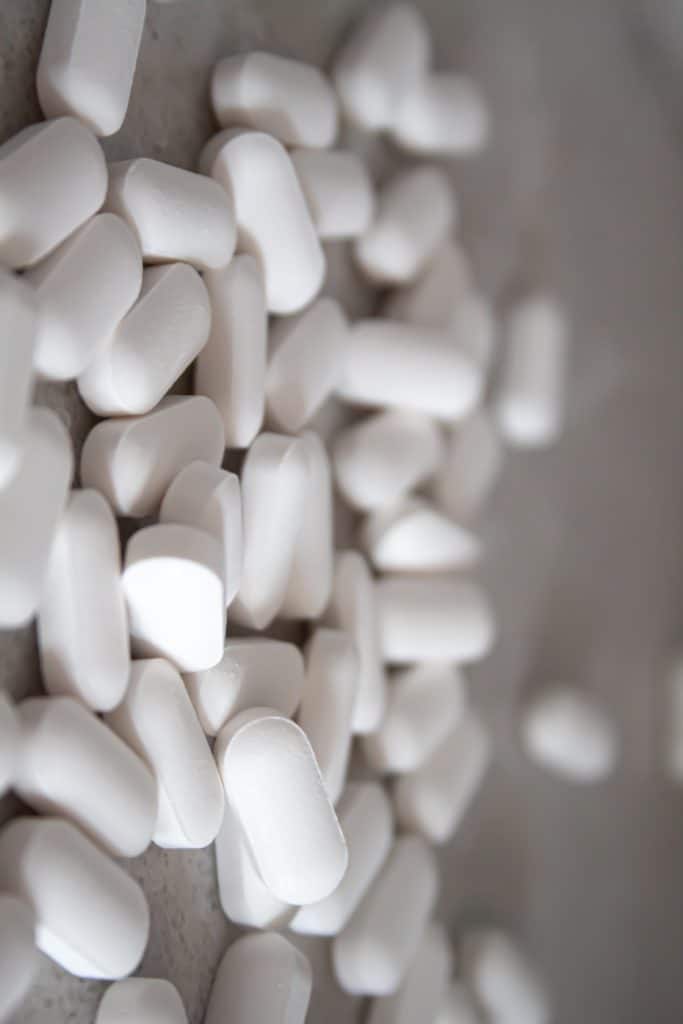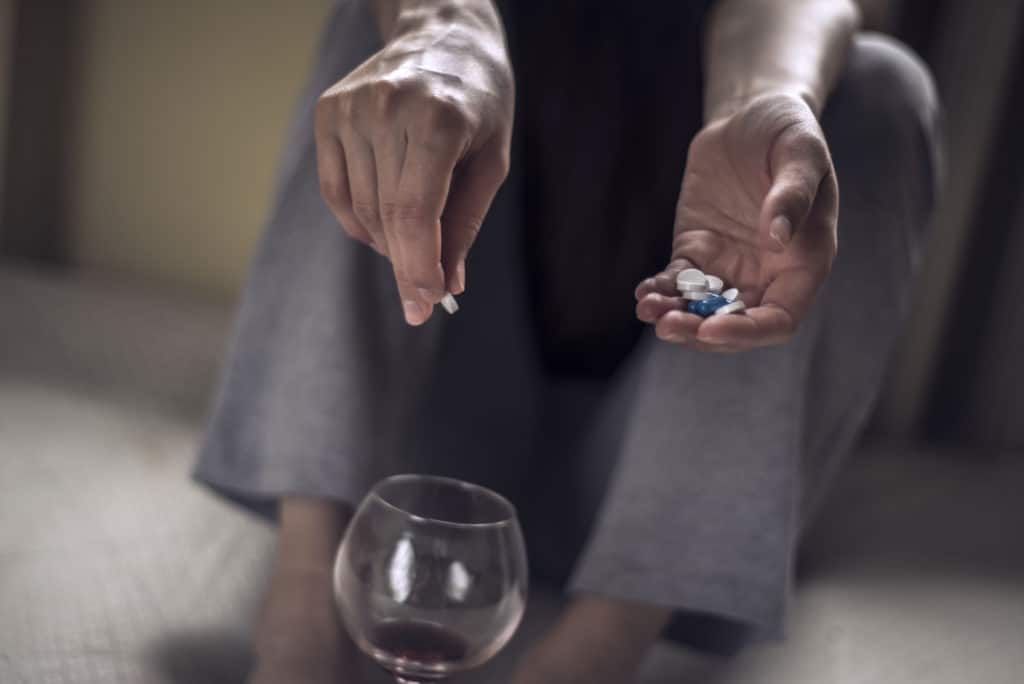What are muscle relaxers?
Most people who take muscle relaxers suffer from muscle spasms, which occur when one or more of your muscles cramps or twitches involuntarily. These spasms can often be uncomfortable and extremely painful. While most individuals can take over-the-counter muscle relaxers like Tylenol or Advil to alleviate the pain, these medications may not be suitable for people who have liver problems or stomach ulcers. Instead, their doctors may prescribe them a muscle relaxant. While these medications can be helpful, the side effects of muscle relaxers can also be just as uncomfortable and painful as the problems they’re meant to treat. Over-the-counter muscle relaxers and prescription muscle relaxants can be addictive and can also cause severe symptoms
Over-the-counter muscle relaxers or muscle relaxants are medications used to treat acute muscle pain and discomfort caused by muscle spasms. Muscle spasms are involuntary contractions that cause excessive strain in muscles and are often associated with conditions such as lower back pain and neck pain.
Medications used as muscle relaxers can differ in their chemical structures and the way they work in the brain. In general, over-the-counter muscle relaxers act as central nervous system depressants and cause a sedative effect or prevent your nerves from sending pain signals to your brain. The onset of action is rapid and effects typically last from 4-6 hours.
Carisoprodol, also known by the brand name Soma, is a prescription skeletal muscle relaxant. It is typically prescribed to relieve pain caused by muscle injuries like strains and sprains. This drug comes in tablet form and is taken by mouth, often several times a day when treating an injury. Soma medication is typically combined with physical therapy and other treatments to treat muscle pain. However, some people become addicted to carisoprodol and use it other than how it is intended.

Can You Mix Muscle Relaxers and Alcohol?
Muscle relaxers are a group of drugs that relieve muscular spasms or pain. They can be prescribed to help ease symptoms associated with conditions such as back pain, neck pain, and tension headaches.
If you’re taking a muscle relaxer, you should avoid consuming alcohol. Read on to learn more about muscle relaxers and why they don’t mix with alcohol. Plus, find out what to do if you’ve already mixed the two.
Why you should’t mix muscle relaxers and alcohol?
So, why is mixing muscle relaxers and alcohol a bad idea? The answer lies in how muscle relaxers and alcohol affect your body. Muscle relaxers and alcohol both depress your central nervous system. They work to slow brain activity, which can slow functions down your breathing and heart rate as well. They can also make you feel calm or sleepy.
Since both muscle relaxers and alcohol have this depressant effect, combining the two can compound their impact on your body. This means that the side effects of muscle relaxers, such as drowsiness or dizziness, can be intensified when you drink alcohol.

What will happen if I mix muscle relaxers and alcohol?
Mixing muscle relaxers and alcohol can make the effects of muscle relaxers more intense — and not in a good way. This can lead to potentially dangerous symptoms, such as:
- Increased drowsiness or tiredness
- Dizziness or light-headedness
- Slowed breathing
- Reduced motor control or coordination
- Problems with memory
- Increased risk of seizures
- Increased risk of overdose
Additionally, both alcohol and muscle relaxers are potentially addictive substances. Long-term use of either or both may increase your risk of developing an addiction.
Muscle relaxers and alcohol withdrawal
Generally, muscle relaxers and alcohol don’t mix. But there is one muscle relaxer called baclofen that some experts believe might help with alcohol withdrawal. Alcohol withdrawal is a condition that occurs when a person who’s been drinking heavily or for a prolonged period stops drinking alcohol. Symptoms can be potentially serious and include things like:
- Tremors
- Irritability
- Sweating
- Elevated heart rate
- Quick breathing
- Increased blood pressure
- Nausea and vomiting
- Trouble sleeping
- Nightmares
- Hallucinations
- Seizures
It’s believed that baclofen works by mimicking the effects of alcohol on a specific type of receptor in the brain. But so far, evidence supporting the use of baclofen for alcohol withdrawal is limited. A 2017 review couldn’t draw concrete conclusions about the effectiveness of baclofen in treating alcohol withdrawal. The investigators found that the studies reviewed contained evidence that was either insufficient or of poor quality.
What to do if you’ve already mixed muscle relaxers and alcohol?
If you’ve already mixed muscle relaxers and alcohol, stop drinking immediately. To err on the side of caution, it’s best to see a healthcare professional as soon as possible, especially if you’ve had more than one drink or don’t drink often. Remember, alcohol can intensify the effects of muscle relaxers, and combining the two can lead to an increased risk of alcohol poisoning.
Signs of an overdose from muslce relaxers and alcohol
Seek immediate medical attention if you notice any of the following symptoms:
- Feeling extremely tired
- Nausea or vomiting
- Slowed breathing
- Feeling very weak
- Severely impaired movement or coordination
- Heartbeat abnormalities, such as palpitations or arrhythmias
- Confusion
- Low blood pressure
- Seizures
Other things to avoid while taking muscle relaxers
Alcohol isn’t the only thing to steer clear of while taking muscle relaxers.
Certain medications can also react with muscle relaxers, including:
- Opioid drugs, such as the pain relievers OxyContin and Vicodin
- Benzodiazepines, a type of sedative medication such as Xanax and Klonopin
- Tricyclic antidepressants
- Monoamine oxidase inhibitors
- Fluvoxamine, a selective serotonin reuptake inhibitor
- Ciprofloxacil (Cipro), an antibiotic
Muscle Relaxers Abuse
Muscle relaxers have the potential for abuse and addiction. Prolonged use can lead to increased tolerance and physical dependence, especially with Soma. For this reason, muscle relaxers are intended as a short-term treatment not to be prescribed for more than 2-3 weeks.
Unfortunately, many individuals take muscle relaxers alone or in combination with other illicit drugs for nonmedical reasons, such as to produce or enhance feelings of euphoria and dissociation. According to the Drug Enforcement Administration, Soma is one of the most commonly diverted drugs in the United States. Evidence also indicates prevalent misuse of Flexeril. In 2010 there were over 12,000 emergency room visits associated with Flexeril, and in 2016 over 10,000 calls to the Poison Control Centers had involved Flexeril.

Over-the-counter muscle relaxers abuse can lead to serious dangers such as an increased risk of overdose, which can result in:
- Stupor
- Hallucinations
- Seizures
- Shock
- Respiratory depression
- Cardiac arrest
- Coma
- Death
Effects of Soma (Carisoprodol)
Carisoprodol causes muscle relaxation, sedation, and decreased anxiety. However, muscle relaxants like carisoprodol can also cause various unintended side effects. These side effects can become more severe, and even dangerous when the drug is misused. The National Library of Medicine lists the following side effects of carisoprodol:
- Drowsiness
- Dizziness
- Increased clumsiness
- Headache
- Increased heart rate
- Upset stomach and vomiting
- Skin rash
Some side effects, like difficulty breathing, fever, weakness, or burning in the eyes, can indicate a severe reaction to carisoprodol and require immediate medical attention. The effects of carisoprodol generally set in within 30 minutes of taking the drug and generally last 4-6 hours.
Abusing carisoprodol can have many adverse effects on the body. The Drug Enforcement Administration lists the following physical effects:

- Agitation
- Irritability
- Depression
- Temporary loss of consciousness
- Tachycardia
- Hypotension
- Extreme weakness
- Cervical spine injury
- Difficulty speaking
- Temporary loss of vision
- Double vision
- Dilated pupils
- Euphoria
- Confusion
- Disorientation
These effects are typically short-lasting. However, continued abuse of the drug can cause permanent damage to the body. The heart, lungs, liver, kidneys, and brain can all be adversely affected by abuse of prescription medications.
Reclaim Your Life From Muscle Relaxers and Alcohol
Mixing muscle relaxers and alcohol to get a sort type of high is a sign of addiction. We Level Up California can provide you, or someone you love, the tools to recover from this with professional and safe detox and treatment. Feel free to call us to speak with one of our counselors. We can inform you about this condition by giving you relevant information. Our specialists know what you are going through. Please know that each call is private and confidential.
Sources
[1] Dantrium (dantrolene sodium) capsules. (2011).
accessdata.fda.gov/drugsatfda_docs/label/2012/017443s043s046s048s049lbl.pdf
[2] Flexeril (cyclobenzapine HCl) tablets. (2013).
accessdata.fda.gov/drugsatfda_docs/label/2013/017821s051lbl.pdf
[3] Harmful interactions. (2014).
niaaa.nih.gov/publications/brochures-and-fact-sheets/harmful-interactions-mixing-alcohol-with-medicines
[4] Lioresal intrathecal (baclofen injection). (2011).
accessdata.fda.gov/drugsatfda_docs/label/2011/020075s021lbl.pdf
[5] Norflex (orphenadrine citrate) extended-release tablets and injection. (2006).
accessdata.fda.gov/drugsatfda_docs/label/2007/012157s028lbl.pdf
[6] Prescription CNS depressants. (2018).
drugabuse.gov/publications/drugfacts/prescription-cns-depressants